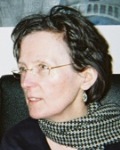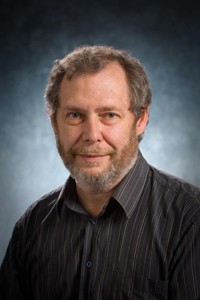 Jim Kanaris is Professor of Religious Studies at McGill University. We invited him to answer the question “What does philosophy of religion offer to the modern university?” as part of our “Philosophers of Religion on Philosophy of Religion” series.
Jim Kanaris is Professor of Religious Studies at McGill University. We invited him to answer the question “What does philosophy of religion offer to the modern university?” as part of our “Philosophers of Religion on Philosophy of Religion” series.
Philosophy of religion, at least as a university exercise, comes in different sizes and shapes. As a practice that evolved from ancient Greece through medieval Europe to modern and contemporary empiricisms and rationalisms, the preoccupation has tended to be with fundamental topics such as proofs for God’s existence and theodicy brought to bear through issues of logic, language theory, and cosmology. This analytic approach continues to be the dominant form of “philosophy of religion”. One finds it commonly in philosophy departments, also embodied in the more normative discourse of philosophical theology practiced in professional schools of theology. A younger development stems largely from German schools of thought in the nineteenth century, to which contemporary French forms are indebted in their significantly less topical, political-hermeneutical restructuring of the field. Conveniently dubbed continental, one finds this approach in philosophy departments in both Europe and North America, although in Europe one senses an indifference to identifying with a subfield of philosophy of religion as such. It is also the more dominant form of philosophizing found in religion departments, a fact that is hardly surprising when one considers that continental reflection birthed comparative religion.
What philosophy of religion offers the modern university is an arresting question. How one answers it will depend on the type of philosophy of religion one practices, which is usually shaped by the environment in which one teaches it and the professional communities with which one associates. Philosophy of religion in a philosophy department, for example, will have an aim different from philosophy of religion in a theology department or religious studies program. In one context the aim is to introduce students to epistemological issues such as whether religious language is properly understood in, say, realist or nonrealist terms. In another context the aim will differ slightly, developing the normative claims of a specific tradition philosophically, either in terms exclusive to that tradition or in comparison to other traditions. In still another context the aim may be to critically assess religious beliefs and practices as one siphons off issues surrounding humanity’s existential plight or as one connects them to some social-political reality. In my estimation all the positions in this admittedly broad taxonomy possess a legitimacy, especially if our aim is to avoid parochialism. Be that as it may, philosophers of religion have their preferences, the more responsible ones aim to address a divided field.
For the purposes of this blog, I wish to bracket these boundary questions and focus instead on my own teaching environment, which happens to be religious studies. This forces me to think differently about philosophy of religion. Ironically, in my desire to avoid parochialism, my contribution to this question does seem dangerously close to being parochial. Nevertheless, its application is, I believe, transdisciplinary.
One thing is certain: there is a deep wedge between the student demographic in religious studies and the concerns and procedures of the card-carrying philosopher of religion. The specificities of the intellectual culture and history surrounding those procedures are no longer privileged in global consciousness. The inclusion of diverse perspectives, whose religious worldviews are assessed in terms of their logical weight, continues to have remedial value. But the extension of this analytic procedure is simultaneously too specific and general to be wholly effective in religious studies. It’s too specific in the sense of being bound to a tradition of philosophy whose aims have been quite apologetic and modelled on western scientific ideals. It’s too general in the sense that this approach tends to essentialize religious traditions. Ever since at least modern classics as Wilfred Cantwell Smith’s Meaning and End of Religion (1962) and Edward Said’s Orientalism (1978), to mention only two examples, students of religion have developed a dyspeptic sense when confronted by the analytic mien. Issues of power, status, and identity tend to take precedence displacing the traditional platform of knowledge while extending it to the problem of representation (Carrette 2010, 277).
In this environment the role of philosophy can be both object- and subject-constitutive. That is, in a revamped form of “epistemology”, philosophy links up here with an issue-based attention to “socio-economic disparities, environmental degradation, and ongoing biases linked to race, sexual orientation, or colonial exploitation” (Rodrigues and Harding 2009, 104). This object-constitutive approach replaces the systematic scholastic and analytic orientations of pre-modern and modern epistemology with the critical cultural strategies of contemporary theorizing about religion. Philosophy holds much promise in this regard for critical scholarship attuned not so much to the cognitive dimension of religious beliefs as to the historicality (Geschichtlichkeit) of diverse religious phenomena. A hybrid form of such philosophical-methodological interests exists already in religious studies represented in diversified forms by Donald Wiebe, Mark C. Taylor, David Chidester, Jonathan Z. Smith, Russell McCutcheon, Ivan Strenski, and Talal Asad.
The subject-constitutive emphasis dovetails with these interests but emphasizes subjective agency in the task. It joins with the “artistic thinking” of Pierre Hadot and Alexander Nehamas who have reinstalled the ancient practice of philosophy in the academy as a way of life and art of living. The position is a live option today thanks to the pioneering work of Friedrich Nietzsche and his contemporary disciple Michel Foucault—one could throw in Søren Kierkegaard for good measure; and Heidegger? Why not! My own sense about this artistry harks back to the transcendental tradition. It manages philosophical issues broadly in terms of self-critical reflexivity. The singularity of the self is its guiding principle, an irreducible hyper-transcendental that ensures that the individuality of the inquirer is not lost in object-constitutive discourses. In religious studies this means that one’s own intellectual, moral, religious, and political horizons become an explicit means to arbitrate an objectified relationality of concerns: text to self, politics to self, transcendence to self, alterity to self, and what have you. One wouldn’t be wrong to call it personalism, although my preference is to call it “enecstatic”, a disposition that signals a post-Heideggerian ontic preoccupation. In addition to those just mentioned, the thinking of Bernard Lonergan and what he calls self-appropriation has been particularly serviceable. Self-appropriation means precisely what it says, taking possession of one’s self but in the sense of taking responsibility to engage the self as one engages and is engaged by the other, whether that other is an object or a subject. It’s a decisive and personal act that is uninterrupted. An important outcome is to recognize that “[g]enuine objectivity is the fruit of authentic subjectivity” (Lonergan 1972, 292). I translate what Lonergan means by “authentic subjectivity” in a context that reflects the current non-foundationalist climate in philosophy of religion and religious studies.
Enecstasis provides an opportunity for students to negotiate their own sensibility regarding objects that they are often (rightly) encouraged to examine dispassionately. Nevertheless, in this epoché of the personal, the desire to be engaged attaches to an object that disenfranchises students from self-awareness and involvement. Their voice is never really lost, of course, but it resonates as though from another room. Taking possession of it is not something students of religion think of because the room they’re in invariably averts their attention. And yet the alienation is experienced deeply, often viscerally, confusedly. Enecstasis, then, disrupts ideological commitments in religious studies whose object-constitutive presuppositions and methods marginalize a holistic and personal mediation of meaning. As such enecstatic analysis provides a space for participants to decide for themselves how to implement the level and relevance of their engagement. A sociologist will have a different appreciation of how he is implicated in the construction of a religious phenomenon from the historian constructing religious meanings. A philosopher of religion will have to decide for herself how her understanding of mystical experience impacts and is impacted by her being-in-the-world. Theologians must do the same but vis-à-vis the norms of their tradition and the scales of dislocation embodied in the God before whom they learn to dance.
Enecstatic philosophy of religion is ultimately philosophy of religious studies. It includes—indeed, has been generated by—the issues and concerns of analytic and continental philosophies of religion. However, enecstatic philosophy of religion transcends the particularities of these philosophies in providing a space for the personal negotiation of one’s intellectual, moral, religious, and political foundations. Philosophy of religion, religious studies, and theology provide the content and methods of such a focus, enecstasis the contemporary ability to sense their relevance in a personally appropriated subjectivity formed by academic concerns. In an age where student indifference is at an all-time high the importance of such an exercise in the modern university seems beyond question. I see it in undergraduate and graduate students each term as their eyes light up in the realization that they matter, that they have a voice and ought to develop it critically, that is, with a heightened sense of self-awareness.
Works Cited
Cantwell Smith, Wilfred. 1962. The Meaning and End of Religion. New York: Macmillan.
Carrette, Jeremy. 2010. “Post-structuralism and the Study of Religion.” In The Routledge
Companion to the study of Religion, 2d edn., edited by John Hinnells, 274-290. London and New York: Routledge.
Lonergan, Bernard. 1972. Method in Theology. London: Darton, Longman and Todd.
Rodrigues, Hillary and John S. Harding. 2009. Introduction to the Study of Religion. London and New York: Routledge.
Said, Edward W. 1978. Orientalism. New York: Vintage Books Edition.



